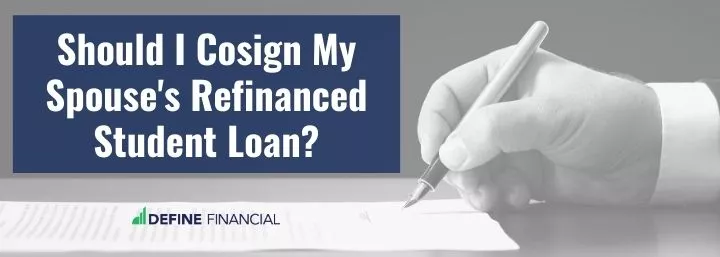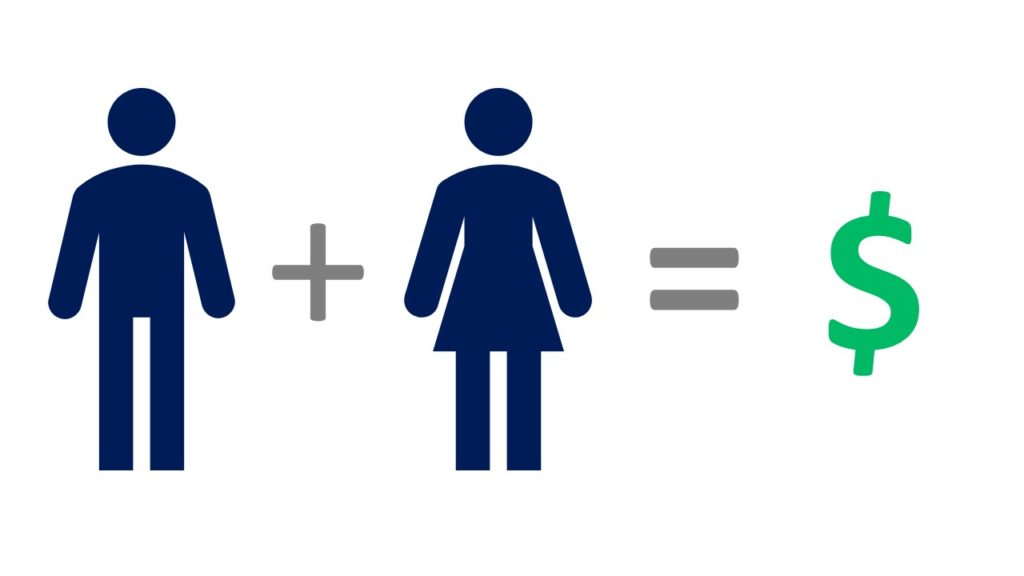
Cosigning a loan may seem like a straightforward way of helping a loved one refinance their student loans.
A solid cosigner could result in better loan terms or a lower interest rate for the borrower.
But not everyone should cosign on a loan, even for a spouse.
Read on for what it means to cosign a loan and what the risks are before you sign on the dotted line.
The following is a post by attorney Adam S. Minsky. Adam focuses his practice in student loan law. Please be advised that this post is not legal advice and does not constitute the creation of an attorney-client relationship. Attorney Minsky is licensed to practice law in Massachusetts and New York.
What is a Cosigner?
A cosigner is someone who signs a loan contract along with the borrower. Cosigners are often required when the borrower does not have sufficiently good credit or income. A cosigner with a solid credit and income history can also help a borrower lower their interest rate because the loan is seen as less risky to the lender.

Adding a cosigner may mean qualifying for a lower interest rate, saving you money.
What Does it Mean to Cosign a Loan?
A cosigner on a student loan is legally responsible for the entire student loan just like the borrower. That means if the borrower can’t make payments, the cosigner is fully responsible.
This means the lender can pursue the cosigner legally if the borrower fails to make payments. And negative information about the loan – such as a late payment or a default – gets reported to the credit bureaus for both the borrower and the cosigner.
Can a Cosigner Be Removed From the Loan?
Some private student loan contracts have a provision that allows for the cosigner to be released under certain circumstances. But this isn’t the norm.
Some lenders allow cosigner release if a series of on-time payments is made (usually over two or more years). Other times, either the borrower or cosigner can make a lump-sum payment.
The borrower and the cosigner may be required to supply financial information so the lender can evaluate the risk of releasing the cosigner from the contract.
And in almost all cases, the lender retains sole discretion whether to release a cosigner release or not. Meaning the lender can just say “no” (and they often do) even if you’ve met the requirements.
Before agreeing to be a cosigner on any loan, check with the lender on its cosigner requirements and release provisions. Be sure to read the loan contract fully and ask any questions you have. However, even if a lender has a release provision, don’t bet on it being a guarantee.
Implications for Married Couples
Cosigning a student loan for a spouse may seem like no big deal, especially if the couple has joint finances. But it can be risky for a few reasons.
For example, a household financial hardship could harm the credit of both people if there is a late payment or a default.
This could prevent you from getting other loans in the future like for a new car or home.
Or, if there’s a divorce, that divorce may not be sufficient to eliminate the dual responsibility of both the borrower and the cosigner to repay the loan. This can lead to obvious complications.
Bottom Line
The question of whether or not someone should cosign a loan is a tough one.
It can have clear benefits, including a lower interest rate and better loan terms. But there are some significant risks and responsibilities both parties should take seriously before proceeding.
In the end, be sure you fully understand the loan contract and its implications before signing.

